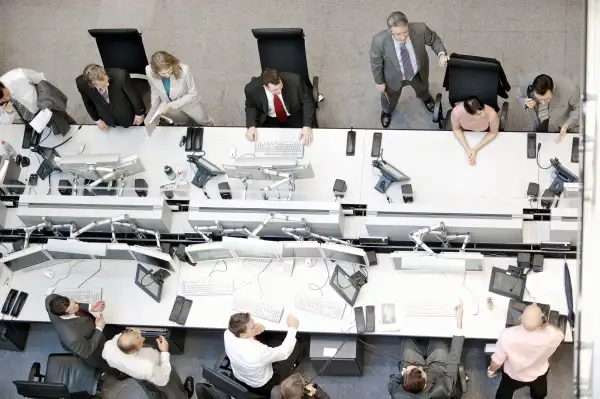How the Fed Will React to Today's Surprising Jobs News
Money is not a client of any investment adviser featured on this page. The information provided on this page is for educational purposes only and is not intended as investment advice. Money does not offer advisory services.

The Fed is unlikely to raise interest rates this year — and not just because of Friday's disappointing jobs report.
Though the economy fell short of adding 200,000 jobs in August — as it had in the six prior months — the unemployment rate remains at a better-than-expected 6.1%. Consumer confidence, meanwhile, rose in August and the economy grew by a robust 4.2% last quarter.
Many have long-waited for the time when the economy picks up and the Federal Reserve raises interest rates along with it. Even the presidents of the St. Louis and Philadelphia Federal Banks recently said the nation’s central bank should raise interest rates sooner than expected thanks to job gains and slightly rising inflation.
But given muted inflation and the growing concerns in Europe — where the economy threatens to slip back into recession and central bankers are still slashing rates in a desperate attempt to jumpstart business activity in the region — Fed chair Janet Yellen was unlikely to act soon. And today's Labor Department report, showing that only a modest 142,000 jobs were created in August, only reinforces this.
Jobs
The unemployment rate has already dropped more than half a percentage point this year.
US Unemployment Rate data by YCharts
But that's just one way to look at the labor market. Another is the labor force participation rate. Since younger Americans tend to go school, and Baby Boomers are beginning to retire en masse, you can look at the participation rate for workers between the ages of 25 to 54. Before the recession almost 80% of those Americans were working or looking for a job. Now, 77% are. To put that into perspective, 81% of prime aged workers in France participate in the labor force.
Another, more inclusive, employment metric is the so-called U-6 rate of unemployment — which includes unemployed workers, Americans who want to work but have stopped looking for a job, and part-time workers who'd rather put in full-time hours. The U-6 rate has dropped from about 17% after the recession to 12% now, but that's still close to four percentage points higher than before 2008.
Here's Yellen from her Jackson Hole speech a couple of weeks ago:
At nearly 5% of the labor force, the number of such workers is notably larger, relative to the unemployment rate, than has been typical historically, providing another reason why the current level of the unemployment rate may understate the amount of remaining slack in the labor market.
Inflation
Despite predictions of increased inflation thanks to unorthodox monetary policy, deflation has been a bigger concern since the recession than inflation. Nevertheless, some central bank officials are still worried about an unexpected rise in prices thanks to an improving jobs situation and want to head off that potential rise with higher interest rates.
As Philadelphia Fed President Charles Plosser said on a Bloomberg Radio interview, "I would rather us get started raising rates sooner and raise them more gradually than put them off and have to raise them very quickly."
The Congressional Budget Office disagrees. The non-partisan agency predicted that over the next 10 years inflation will only rise around 2% a year, in a recent report. "CBO anticipates that prices will rise at a modest pace over the next several years reflecting slack in the economy and widely held expectations for low and stable inflation."
Right now core inflation, according to the Federal Reserve's preferred measurement, grew by 1.5% in July over the previous 12 months. That's well below the Fed's target rate of 2%.
Europe
Depressed Americans need only look across the pond to see how badly our recovery could be going. The Euro zone area experienced no growth in the second three months of 2014. Combine that with ultra-low inflation and you have the recipe for economic stagnation. Even the vaunted German economy stalled.
This three-year experience of little economic traction follows the European Central Bank's decision to raise interest rates in 2011 during the sovereign debt crisis in order to fight inflation. Quash it they did. Prices recently rose by an annual rate of only 0.3% in August in the 18-country Euro zone, prompting ECB President Mario Draghi (who wasn't in charge back then) to drop interest rates to an all-time low of 0.05%.
Eventually American consumers will see raises and go off and spend that extra cash. Demand will not stay depressed forever, and the Fed will one day raise interest rates. That decision, though, is more likely to be later than sooner.
